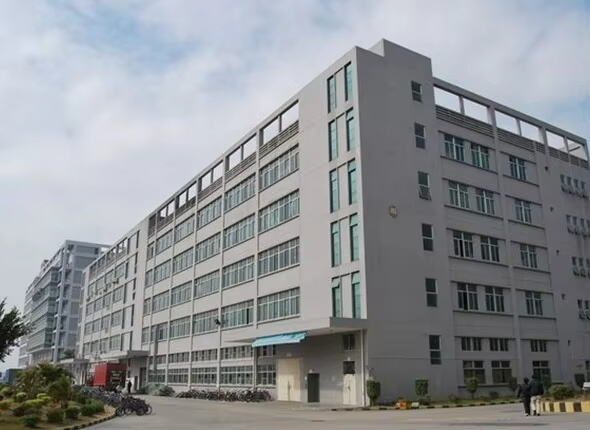Maximizing Efficiency in International Shipping
Global trade relies on the fast and reliable movement of goods across continents, and one of the most trusted methods for this purpose is freight by air. As industries become more dynamic and markets more interconnected, logistics providers and businesses are turning to air transport to ensure speed, reliability, and security. Freight by air offers unmatched advantages, making it an essential mode for time-sensitive shipments, high-value items, and global supply chain efficiency.
Speed and Delivery Time
Fastest Transit Option Available
Freight by air significantly reduces shipping time compared to sea or ground transportation. With major cargo routes covering international hubs, goods can move from one continent to another in less than a day. This makes air freight ideal for industries that require just-in-time delivery models or rapid replenishment cycles. When companies must meet tight deadlines or avoid production delays, freight by air is the most effective choice.
Optimized for Urgent Shipments
Whether it’s emergency medical supplies, essential manufacturing components, or perishable goods, air freight ensures they reach their destination quickly. Businesses dealing in high-demand or volatile markets rely on freight by air to remain agile and responsive. The ability to transport goods at high speed can make the difference between success and loss in time-critical industries. Air freight is the go-to option when time is more valuable than cost.
Reliability and Scheduling
Predictable Flight Timetables
Airlines operate on fixed schedules with multiple daily departures and arrivals. This consistency makes freight by air more reliable than other modes affected by port congestion, customs delays, or ground transportation bottlenecks. Planned routes reduce the risk of extended delays. This predictability is crucial for industries that depend on accurate supply chain forecasting.
Reduced Disruptions and Delays
Freight by air is less impacted by geopolitical restrictions, border issues, or regional unrest that could hinder sea or land transport. Even in cases of disruption, alternative air routes are easier to implement quickly, helping maintain supply chain continuity. Because air routes span the globe and operate independently of terrestrial limitations, they offer a greater degree of operational resilience.
Security and Safety
Enhanced Cargo Protection
Airports and airlines maintain strict security protocols. From x-ray screening to secure loading processes, freight by air benefits from multilayered safety measures. This is particularly advantageous for valuable goods such as electronics, pharmaceuticals, and luxury items. Companies can rest assured that their cargo is less vulnerable to theft or tampering.
Minimal Handling and Storage Time
Cargo shipped via air is usually handled fewer times than in multimodal or sea freight processes. Reduced handling means less exposure to damage, loss, or theft, contributing to the overall safety of the goods in transit. It also ensures that perishable goods maintain quality, and sensitive equipment remains intact during the journey.
Global Reach and Connectivity
Access to Remote and Landlocked Areas
Freight by air offers unmatched geographic access. Even remote regions without sea ports or extensive road networks are often accessible via regional airports. This opens markets previously limited by infrastructure. It allows businesses to establish customer bases in underserved regions, fostering new trade opportunities.
Integration with Major Trade Hubs
Air freight links directly to major commercial centers, facilitating faster distribution within target markets. Airports near major cities provide direct access to production facilities, warehouses, and retail locations, optimizing the final-mile logistics process. This integration reduces transportation costs and enhances customer service delivery.
Lower Inventory Costs
Reduced Warehousing Needs
By shortening delivery times, freight by air minimizes the need to stockpile large inventories. Companies can adopt lean inventory strategies and still maintain consistent supply, freeing up capital and reducing warehousing expenses. These savings can then be reinvested into growth, innovation, or customer service.
Improved Supply Chain Agility
Businesses that rely on freight by air are better equipped to adjust to demand fluctuations. When market trends shift, companies can respond quickly without holding excess stock, thus increasing their financial efficiency. It supports just-in-time manufacturing and makes seasonal product launches more feasible.

Supporting Specialized Freight Needs
Ideal for Temperature-Sensitive Goods
Freight by air is equipped with specialized equipment for temperature control. Pharmaceuticals, food, and flowers benefit from climate-controlled environments, ensuring they arrive fresh and undamaged at their destination. These capabilities are critical for maintaining product integrity and meeting regulatory compliance standards.
Accommodating High-Value Shipments
Whether shipping fine art or critical machinery, freight by air provides the required level of security, monitoring, and insurance coverage. This specialization reduces risk and enhances peace of mind for businesses and customers alike. The ability to track and insure these items more thoroughly sets air freight apart from other methods.
Environmental and Sustainability Considerations
Innovations in Sustainable Aviation
While traditionally viewed as less environmentally friendly, the air freight industry is adopting green technologies. Fuel-efficient aircraft, carbon offset programs, and sustainable fuel research are helping reduce the environmental impact of freight by air. These initiatives are becoming increasingly important to companies with sustainability commitments.
Efficient Use for Critical Loads
By prioritizing high-value, urgent, or lightweight shipments, businesses can use freight by air strategically. This balance allows for environmental responsibility while leveraging the key advantages of air transport. It also helps companies reduce waste and overproduction by improving delivery precision.
Enhancing Customer Satisfaction
Meeting Consumer Expectations
With the rise of e-commerce and global consumer demand for rapid delivery, freight by air enables companies to meet these expectations. Faster shipping options result in happier customers and stronger brand loyalty. This speed becomes a competitive edge, particularly in time-sensitive sales cycles.
Enabling Product Launch Success
Speed-to-market is critical in today’s competitive landscape. Freight by air supports faster product launches by ensuring that promotional goods, retail inventory, or marketing materials arrive on schedule across global markets. This enables marketing campaigns to align more closely with availability, increasing conversion and sales.
Adapting to Market Volatility
Buffer Against Supply Chain Shocks
Freight by air acts as a valuable tool during disruptions, such as natural disasters, port strikes, or pandemics. It provides a backup option to ensure continuity and prevent major supply chain breakdowns. This resilience allows businesses to maintain service levels during otherwise turbulent periods.
Supporting Time-Sensitive Industries
Industries like fashion, technology, and healthcare rely heavily on air transport due to their product life cycles. Freight by air ensures that seasonal lines, limited editions, or emergency equipment reach their markets without delay. It empowers businesses to respond to opportunities faster and stay ahead of competition.
Increasing Competitive Advantage
Accelerating Global Expansion
Companies entering new international markets benefit from the efficiency and reach of air freight. Being able to quickly establish supply lines increases competitiveness and reduces the time to profitability. It creates room for scalability without the initial delays often seen in traditional shipping.
Strengthening Brand Reputation
Reliable, fast delivery enhances customer perception. Freight by air supports service excellence, which can differentiate a brand in crowded marketplaces. It builds trust, reinforces professionalism, and supports higher customer retention rates.
Simplifying Logistics Management
Streamlined Documentation Processes
Air freight generally requires less paperwork than sea freight, especially for consolidated cargo. The faster documentation process reduces administrative burdens and makes international logistics more manageable. This results in shorter lead times and more transparent transactions.
Access to Real-Time Tracking
Modern air freight services provide advanced tracking systems. Businesses can monitor their cargo through every stage of its journey, allowing for better planning and faster issue resolution. Real-time visibility also enables better communication with customers and stakeholders.
FAQ
What types of goods are best suited for freight by air?
High-value, time-sensitive, perishable, or lightweight goods benefit the most from freight by air, including electronics, medical supplies, fashion items, and perishables.
Is freight by air more expensive than other shipping methods?
Yes, it generally costs more than sea or land freight, but the speed, security, and efficiency often justify the higher price for urgent or critical shipments.
How do I choose a reliable air freight provider?
Look for companies with global networks, real-time tracking, cargo insurance, and proven experience in handling the type of goods you plan to ship.
Can freight by air support sustainability goals?
Yes, through strategic use of air freight for critical shipments, combined with carbon offset programs and fuel-efficient aircraft, businesses can align air logistics with environmental initiatives.
Table of Contents
- Maximizing Efficiency in International Shipping
- Speed and Delivery Time
- Reliability and Scheduling
- Security and Safety
- Global Reach and Connectivity
- Lower Inventory Costs
- Supporting Specialized Freight Needs
- Environmental and Sustainability Considerations
- Enhancing Customer Satisfaction
- Adapting to Market Volatility
- Increasing Competitive Advantage
- Simplifying Logistics Management
- FAQ



